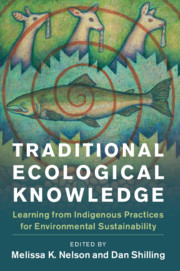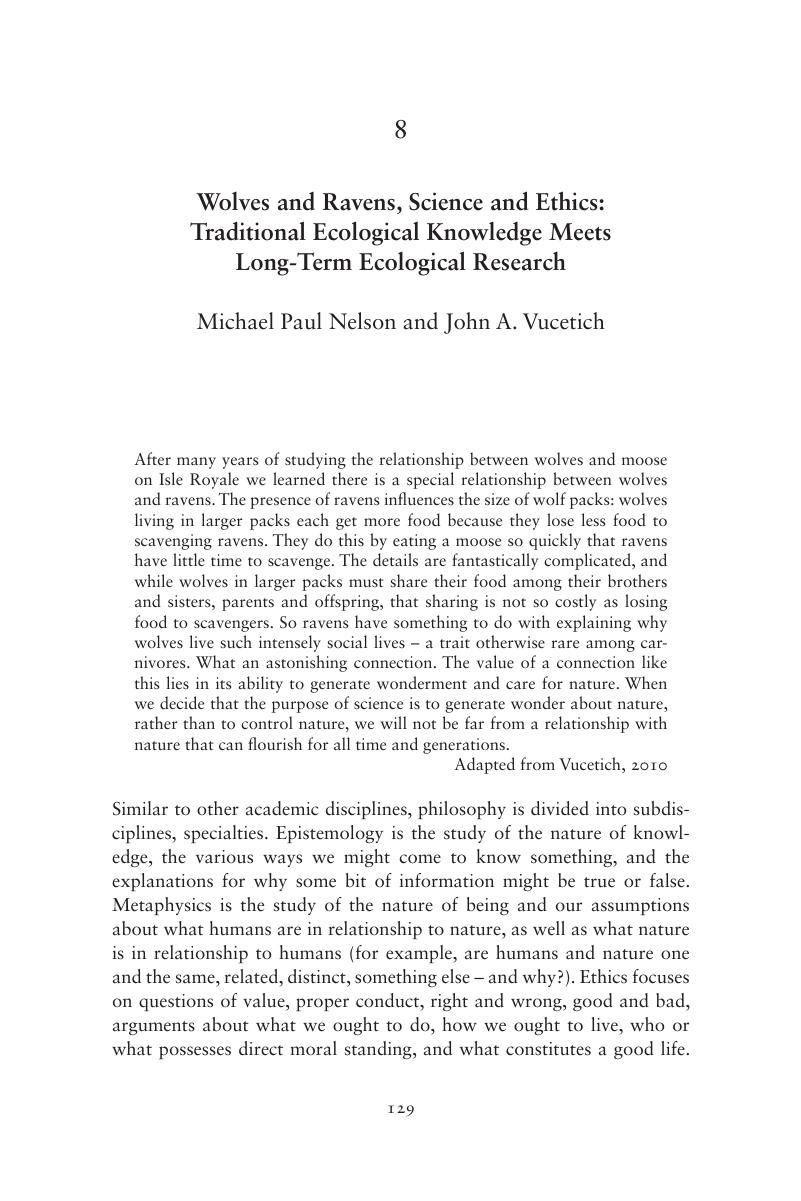 Traditional Ecological Knowledge
Traditional Ecological Knowledge Book contents
- Traditional Ecological Knowledge
- New Directions in Sustainability and Society
- Traditional Ecological Knowledge
- Copyright page
- Contents
- Editors and Contributors
- Preface
- Part I Introduction to Key Concepts and Questions
- Part II Bedrock
- 5 Indigenous Sustainability: Language, Community Wholeness, and Solidarity
- 6 A Single Strand: The Nsyilxcin Speaking People’s Tmixw Knowledge as a Model for Sustaining a Life-Force Place
- 7 Toward a Philosophical Understanding of TEK and Ecofeminism
- 8 Wolves and Ravens, Science and Ethics: Traditional Ecological Knowledge Meets Long-Term Ecological Research
- Part III Extended Web
- Part IV Global and Legal Implications of Indigenous Sustainability
- Index
- References
8 - Wolves and Ravens, Science and Ethics: Traditional Ecological Knowledge Meets Long-Term Ecological Research
from Part II - Bedrock
Published online by Cambridge University Press: 21 September 2018
- Traditional Ecological Knowledge
- New Directions in Sustainability and Society
- Traditional Ecological Knowledge
- Copyright page
- Contents
- Editors and Contributors
- Preface
- Part I Introduction to Key Concepts and Questions
- Part II Bedrock
- 5 Indigenous Sustainability: Language, Community Wholeness, and Solidarity
- 6 A Single Strand: The Nsyilxcin Speaking People’s Tmixw Knowledge as a Model for Sustaining a Life-Force Place
- 7 Toward a Philosophical Understanding of TEK and Ecofeminism
- 8 Wolves and Ravens, Science and Ethics: Traditional Ecological Knowledge Meets Long-Term Ecological Research
- Part III Extended Web
- Part IV Global and Legal Implications of Indigenous Sustainability
- Index
- References
Summary

- Type
- Chapter
- Information
- Traditional Ecological KnowledgeLearning from Indigenous Practices for Environmental Sustainability, pp. 129 - 136Publisher: Cambridge University PressPrint publication year: 2018
References
Works Cited
- 1
- Cited by


